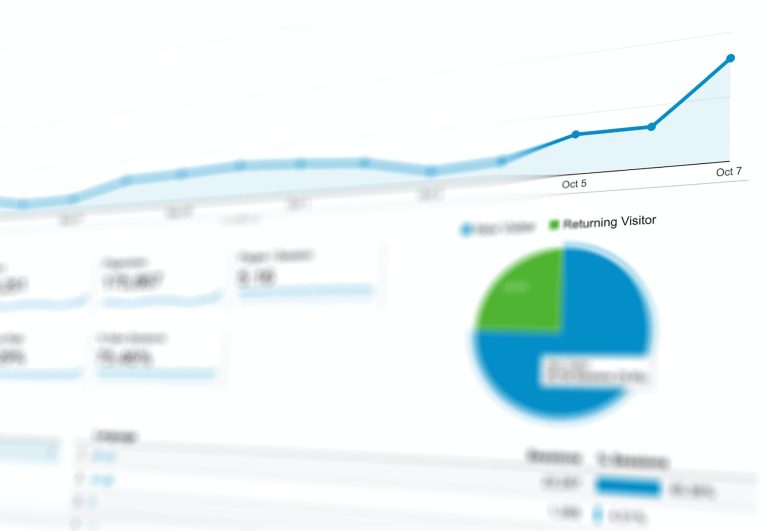SEO: Don't Let These Common Mistakes Hold Back Your Growth!
SEO, or search engine optimization, is one of the most cost-effective ways to boost your online visibility and drive long-term organic traffic to your website. Yet, many businesses, despite their efforts, still make SEO mistakes that hinder their growth and prevent them from reaching Google's first page. These missteps, often easy to fix, can significantly limit the effectiveness of your SEO and digital marketing strategies, reducing your chances of driving organic traffic or improving your Google rankings.
Before diving into complex optimizations, it’s crucial to identify and fix these fundamental errors to establish a strong foundation for measuring the success of your SEO efforts.
In this guide, we’ll break down the five most common SEO mistakes you should avoid. By following our tips, you can build a solid foundation for your SEO strategy and achieve long-lasting results with a better ROI. If left unaddressed, these issues could render your efforts in link building, creating backlinks, and optimizing your SEO content far less effective, reducing your ability to increase organic traffic and improve Google rankings.
Prioritize Search Intent First

The most fundamental mistake is focusing solely on keywords while ignoring user search intent. Modern SEO isn’t about repeating a term—it’s about answering the user’s question or solving their issue. Understanding search intent is the cornerstone of creating high-performing SEO content that drives organic traffic and improves Google rankings. Here’s what to focus on:
- Understand the need behind the query : Before creating a page, consider what the user is trying to achieve. Are they looking for information (informational intent), planning to make a purchase (transactional intent), or trying to access a specific site (navigational intent)?
- Match the content format to the intent: The type of content you create depends on the search intent. For example, a query like "best CRM software" requires a comparison article, not a sales page. Similarly, someone searching "how to do SEO" expects a detailed guide, tutorial, or case study that truly adds value and drives organic traffic.
- Analyze competitors pages : Check the top-ranking pages for your target keyword. What type of content do they offer? What perspective do they take? This will give you valuable insights into what Google considers relevant for that query and help you improve your online visibility and rankings.
By performing this analysis, you’ll have a clear understanding of the type of SEO content to create to truly satisfy users, drive high-quality organic traffic, improve Google rankings, and, ultimately, appeal to Google.
Audit and Fix Technical SEO

The next often-overlooked step is ensuring your site is technically sound to provide an optimal user experience while supporting proper indexing. Regular technical audits are essential for monitoring SEO performance, improving Google rankings, and uncovering potential SEO errors while simplifying performance tracking.
Here are some common issues to address:
- Slow page loading times: A slow website frustrates users and gets penalized by Google. Optimize image sizes, use caching, and choose high-performance hosting to maintain your organic traffic and increase your chances of growth.
- Indexing problems : Ensure your
robots.txtfile doesn’t block important pages and that your XML sitemap is updated and submitted to Google Search Console to enhance your SEO strategy and rankings. - Broken links and 404 errors : Links that lead nowhere harm user experience and waste "link juice." Use auditing tools to detect and fix them. Strong internal linking can boost your domain authority, drive organic traffic, and improve SEO performance tracking.
- Poorly optimized title tags and meta descriptions : These tags are your storefront in search results. Duplicate, missing, or overly long titles hurt your click-through rates, online visibility, and ability to drive organic traffic.
Creating a clear action plan to address these technical issues will ensure nothing holds back your organic growth or SEO ROI and will streamline long-term SEO performance tracking.
Avoid Weak or Duplicate Content

Analyzing your site’s content is a critical step in any successful SEO strategy. Google values originality, depth, and quality. Focus on creating unique, structured SEO content that improves Google rankings and drives organic traffic.
Here are key elements to focus on:
- Duplicate content (internal and external): Use tools to identify pages with overly similar content. Merge redundant pages with 301 redirects or rewrite them to make them unique, strengthening your domain authority and increasing your potential to earn quality backlinks.
- Thin content: Each page should have a clear purpose and enough substance to be deemed relevant by Google. Thin pages won’t attract quality backlinks or organic traffic.
- Lack of depth: Go beyond surface-level content. Invest in creating in-depth resources like comprehensive guides, detailed case studies, or articles that examine topics from multiple perspectives. Such content is ideal for guest blogging and naturally attracts backlinks to support your link-building strategy.
Regularly updating your SEO content enhances your online visibility, strengthens your Google rankings, and solidifies your organic growth while improving SEO performance tracking.
Build a Proactive Link-Building Strategy

Effective link building is essential for boosting your domain authority, earning quality backlinks, and improving your search rankings to drive organic traffic to your site.
Here's how to avoid common mistakes:
- Create linkable content: Offer unique content, guides, case studies, or infographics that naturally encourage others to link to your site, actively increasing organic traffic and boosting rankings.
- Developing partnerships : Collaborate with other industry players through guest blogging on relevant sites—a powerful digital marketing strategy to earn quality backlinks, improve your Google rankings, and reach new audiences.
- Analyze your competitors' links: Use SEO tools to identify opportunities for link building and uncover effective strategies in your field, ensuring accurate SEO performance tracking.
- Prioritize quality over quantity: A single backlink from a reputable site carries more weight than numerous low-quality links. This is key to driving organic traffic and measuring the effectiveness of your link-building efforts.
These actions support a strong SEO strategy and contribute to your site’s organic growth while enabling regular performance tracking.
Implement Rigorous Performance Tracking

The final (and possibly most disheartening) mistake is not measuring the impact of your efforts. SEO requires patience, but that doesn’t mean you should operate blindly. Launching optimizations or publishing content without tracking is like driving without a dashboard—you can’t achieve lasting improvements in online visibility, organic traffic, ROI, or Google rankings without tracking your progress.
Here’s how to set up effective tracking to guide your strategy and optimize SEO performance:
- Set up essential tools : Install Google Analytics and Google Search Console to monitor organic traffic, keyword performance, backlinks, SEO errors, and the impact of each action.
- Define key performance indicators (KPIs): Focus on metrics like total organic traffic, keywords ranking on the first page, SEO conversion rates, referring domains, backlinks, and domain authority trends. These KPIs are critical for measuring effectiveness and tracking SEO performance.
- Analyze and adjust regularly: Conduct monthly SEO reviews to identify pages for optimization, highlight successes, and seize new link-building or guest blogging opportunities. Regular monitoring helps measure the impact of your SEO strategy on organic growth, domain authority, and traffic over the long term.
Make the Most of Your SEO Fixes
Analyzing search intent, addressing technical SEO issues, enriching your content, and building a smart link-building strategy are all crucial steps for achieving a successful SEO-driven strategy, optimal ROI, and better online visibility. These efforts will also help you drive organic traffic, improve Google rankings, and measure SEO effectiveness through continuous performance tracking.
Remember, SEO is an ongoing process. By avoiding these mistakes, you’re investing in sustainable organic growth, quality traffic, and lasting domain authority. Regular performance tracking, supported by SEO case studies, link-building efforts, and adjustments to your digital marketing strategy, is essential to staying competitive and achieving your goals of driving organic traffic and improving Google rankings.
At customized strategywe help businesses build sustainable, results-driven SEO strategies tailored to their unique goals. Whether you need to fix technical errors, optimize your SEO contentstrengthen your link-building, or boost your domain authority, our team is here to help you enhance your online visibility, maximize your SEO ROI, and equip you with the tools to drive organic traffic, improve Google rankings, and track SEO performance effectively. Contact Us today for a personalized SEO audit, and accelerate your digital success with a digital marketing strategy made-to-measure.






